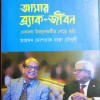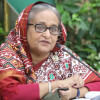Who can help utilise our development budget?

With the rapid rise in development expenditure in recent decades, the demand for performance management, and monitoring and evaluation (M&E) have grown in Bangladesh. A strong M&E system is required in the country to ensure the best utilisation of scarce budgetary resources, at least 36 percent of which was allocated to the development budget for the 2023-24 fiscal year. Awami League President Sheikh Hasina announced her party's manifesto for the 2024 national election on December 27, 2023, to establish Bangladesh as an upper middle-income country by 2031 and a developed, prosperous, and smart one by 2041. One vital element required to fulfil the PM's commitment is to ensure optimal utilisation of the development budget.
The one establishment responsible for overseeing the implementation of the development budget is the Implementation Monitoring and Evaluation Division (IMED), which falls under the Ministry of Planning. But the IMED was not built in a day. In January 1975, when the Project Implementation Bureau was established under the Office of the President, the formal monitoring of ongoing projects began in the country. Due to a rise in development expenditure, the Bureau was upgraded to a division in 1977, with the new title of Project Monitoring Division. In 1982, the division was renamed Implementation Monitoring and Evaluation Division (IMED) and, in 1984, it was placed under the Ministry of Planning.
IMED's functions, as far as monitoring is concerned, include assessing: 1) the financial and physical progress of development projects that were included in the Annual Development Programme; 2) procurement of goods and services; 3) the quality and quantity of implemented work; 4) whether activities are in line with the project design approved in the development project proposal; 5) laboratory tests of materials used in construction work; 6) problems arising during implementation; and 7) stakeholder views on the efficacy of projects. In terms of evaluation, IMED determines the relevance, efficiency, effectiveness, and achievement of outcomes and impacts for different projects. The IMED evaluates a sample of about five percent of the total ongoing projects in a year, with the support of private firms. Very rarely do the remaining projects receive any evaluation with the support of parent ministries.
In other cases, monitoring does exist but is reduced to on-site visits to assess the implementation of project activities, without any analysis of how these activities will be linked to the expected results. Plus, evaluations are carried out in a limited scope and are seldom used in decision-making. It has been observed that M&E functions within ministries and their departments are poorly understood, under-funded, and underutilised.
Over the years, M&E has been applied in government affairs in a way that has not adequately informed policy-making, planning, budgeting, or project implementation. Most government projects in Bangladesh are being implemented without learning from previous interventions due to the absence of evaluation in most projects, which could have improved project outcomes and ensured accountability of those conducting the project. Projects implemented with development partners' funds are typically an exception when it comes to M&E, as these are usually included in the interventions. But even then, evaluation findings are mostly used for internal purposes by the funding agencies.
The IMED is mandated to monitor and evaluate projects and, in recent years, has developed quality guidelines on M&E. IMED officials follow standard M&E processes and ensure that the evaluation reports are of high quality, which is certainly encouraging. However, this warrants training of other ministries and project officials, ensuring the quality of M&E, producing good reports, and following up on recommendations in a timely manner. If this is done in earnest, the quality and efficiency of project implementation will improve and the national budget will be better utilised.
The government should urgently put in place a better M&E system throughout the government machinery to improve the quality of public spending and measure results achieved through public investment. If this is not done, it may be difficult to realise the aforementioned ambitions of the government. Without the quality and timely completion of development projects, the objectives of the 8th Five Year Plan, the Perspective Plan, and of other sectoral plans cannot be achieved.
Currently, the IMED has an office in Dhaka from where it is difficult to monitor projects throughout the country. Therefore, the government should consider decentralising IMED at the divisional level and allow additional staff to be recruited, so that the organisation can ensure project monitoring more widely than it is currently able to. All projects above a certain value should be evaluated once during the implementation period and then again at the end of the project period. A national evaluation policy, which can provide the guidelines for institutionalising an effective evaluation system, should be adopted by the Bangladesh government. This policy can introduce professionalism to the practice of evaluation in the country. The role of IMED needs to be expanded as well, so that it receives additional mandate and funds to transfer knowledge and skills in results-based management, monitoring, evaluation, and change management to different ministries, departments, and local government bodies.
Dr Nawshad Ahmed, an ex-UN official, is an economist and urban planner.
Views expressed in this article are the author's own.
Follow The Daily Star Opinion on Facebook for the latest opinions, commentaries and analyses by experts and professionals. To contribute your article or letter to The Daily Star Opinion, see our guidelines for submission.

 For all latest news, follow The Daily Star's Google News channel.
For all latest news, follow The Daily Star's Google News channel. 










Comments